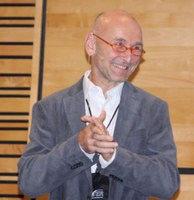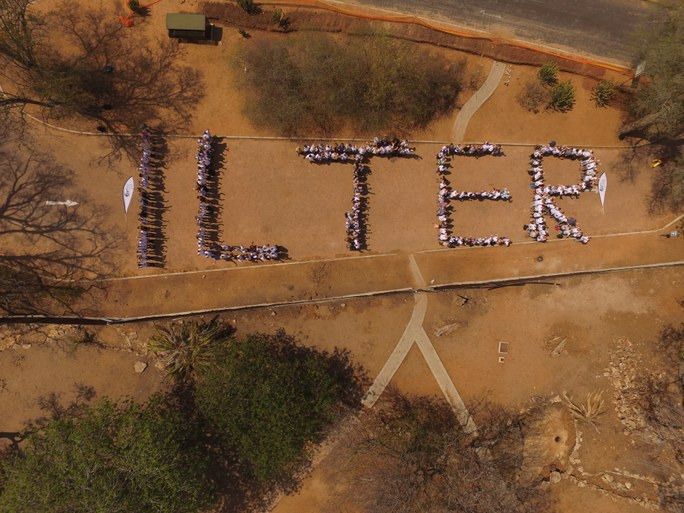Key role of global change research highlighted at ILTER's first Open Science Meeting
From 10-13 October 2016, three hundred delegates from around the globe gathered in Skukuza in South Africa's Kruger National Park for the first ILTER Open Science Meeting.
This landmark event, the first of its kind organised by ILTER (the International Long-Term Ecological Research network), provided an opportunity for scientists to share the research carried out at long-term research sites around the world. In all, some 160 presentations were given.
The Open Science Meeting was hosted by SAEON with sponsorship from the South African Department of Science and Technology.
The conference was officially opened by Dr Phil Mjwara, founding Co-Chair of the Group on Earth Observations (GEO) and Director General of the South African Department of Science and Technology. Dr Mjwara welcomed the delegates, as essential contributors to the achievement of sustainable development goals, to South Africa, the third most biodiverse country in the world. He said that the meeting’s presentations and deliberations would serve to enhance our collective understanding of global change impacts, which could lead to more informed decision-making to safeguard the future of our planet. He also emphasised the importance of global change research - of the kind enabled by ILTER networks - to sustainable development.
"Global Change Research is not a mere curiosity-driven specialised scientific pursuit. Instead, it aims for outcomes that will contribute to human health, social security and prosperity, in short, Global Change Research is essential for “Sustainable Development”"
- Dr Phil Mjwara, DG, South African Department of Science and Technology
 The current chair of ILTER, Dr Michael Mirtl (Environment Agency Austria), who is also the chair of LTER-Europe and coordinator of the eLTER H2020 project, said in his opening address that the first Open Science Meeting presented a platform for globally organised research input as well as global partnerships and collaborations. He traced the development of member networks since 1993 and highlighted the role played by ILTER scientists in contributing to high-level round-tables and the global body of knowledge by means of a wide range of scientific publications. He also introduced delegates to DEIMS, the LTER's web service for information about research sites, people and data sets (co-development of which is now led by eLTER H2020). To conclude, he provided a glimpse into future developments envisaged for ILTER, largely based on the results of a survey among its members in 2015.
The current chair of ILTER, Dr Michael Mirtl (Environment Agency Austria), who is also the chair of LTER-Europe and coordinator of the eLTER H2020 project, said in his opening address that the first Open Science Meeting presented a platform for globally organised research input as well as global partnerships and collaborations. He traced the development of member networks since 1993 and highlighted the role played by ILTER scientists in contributing to high-level round-tables and the global body of knowledge by means of a wide range of scientific publications. He also introduced delegates to DEIMS, the LTER's web service for information about research sites, people and data sets (co-development of which is now led by eLTER H2020). To conclude, he provided a glimpse into future developments envisaged for ILTER, largely based on the results of a survey among its members in 2015.
During the conference, delegates also explored opportunities for collaboration between a range of environmental research organisations, networks and initiatives including: the Intergovernmental Platform on Biodiversity and Ecosystem Services (IPBES); the Global Land Project (GLP); the International Nitrogen Initiative (INI); Future Earth; the Group on Earth Observation (GEO) and related initiatives (GEOBON, GCOS); the World Network of Biosphere Reserves (UNESCO WNBRs), and the Programme on Ecosystem Change and Society (ICSU-PECS). In Europe, LTER-Europe is actively developing links with a range of relevant European initiatives. One good example is the eLTER H2020 project, which brings together the European LTER network with other scientific user groups of long-term ecosystem research infrastructures such as the Critical Zone research community. Meanwhile, the eLTER ESFRI initiative is working on an efficient division of tasks with other European environmental ESFRI research infrastructures.
Key issues emerging from the discussions included that all organisations should make a concerted effort to improve communication and collaboration between the different programmes; work towards encompassing network science; pay attention to the interoperability of their data; combine efforts in sourcing funding and focus on conducting their research in situ over larger scales in an effort to gain a more comprehensive understanding of the impact of climate change on ecosystems.
-

- ILTER Open Science Meeting group picture taken from a drone at the Skukuza camp in Kruger National Park, S.A. (Source: SAEON technical team)